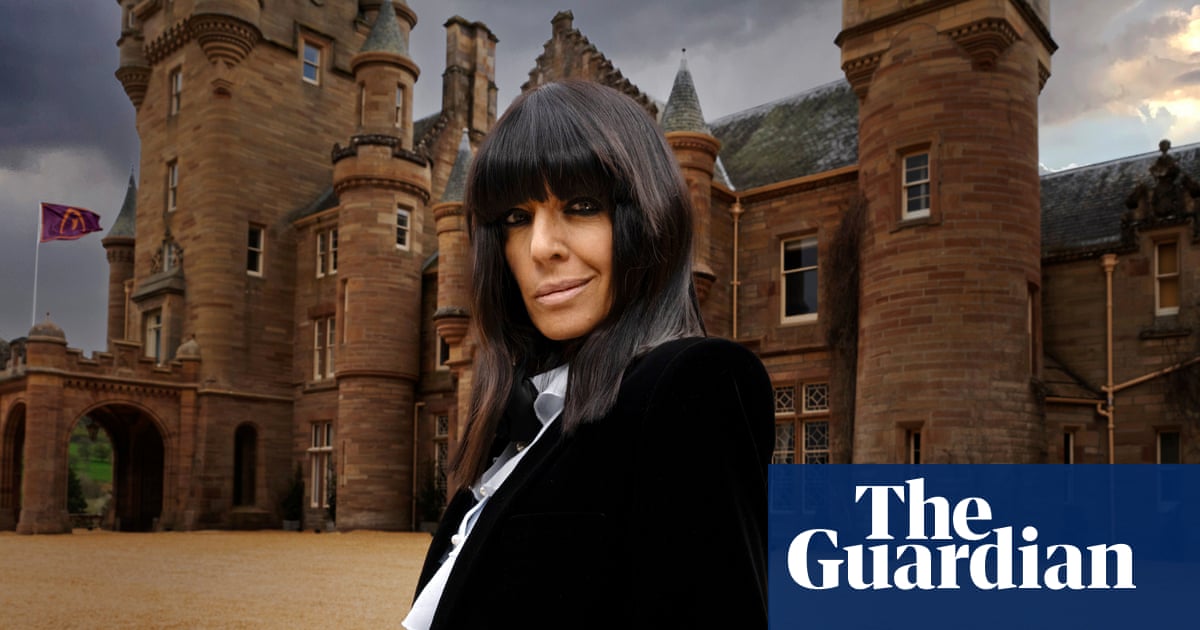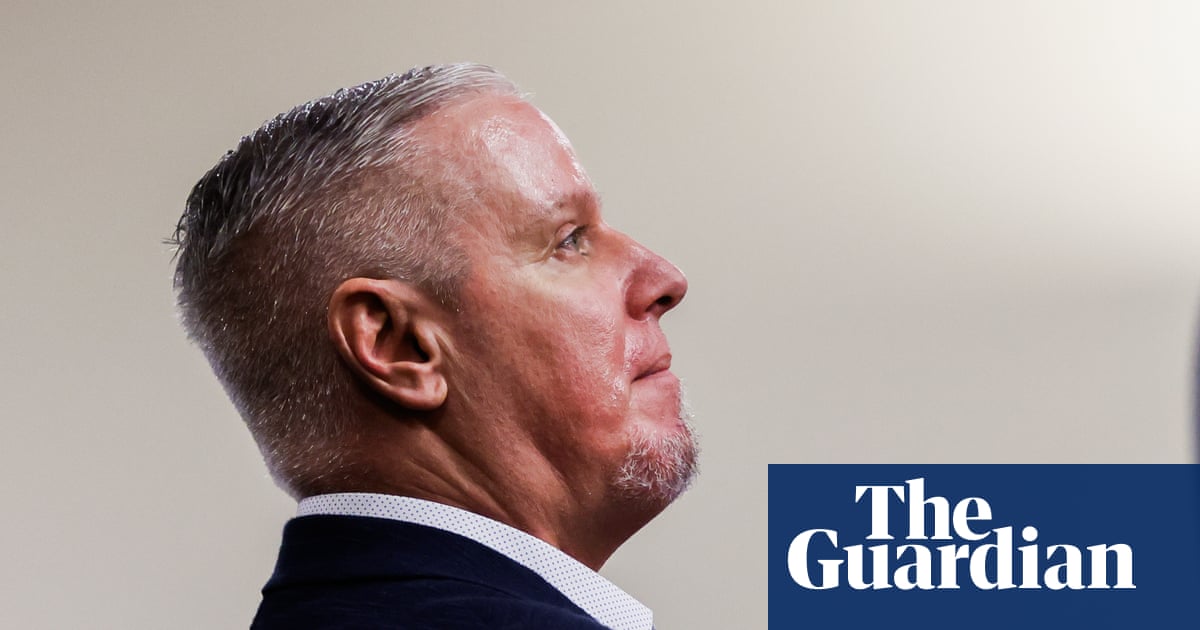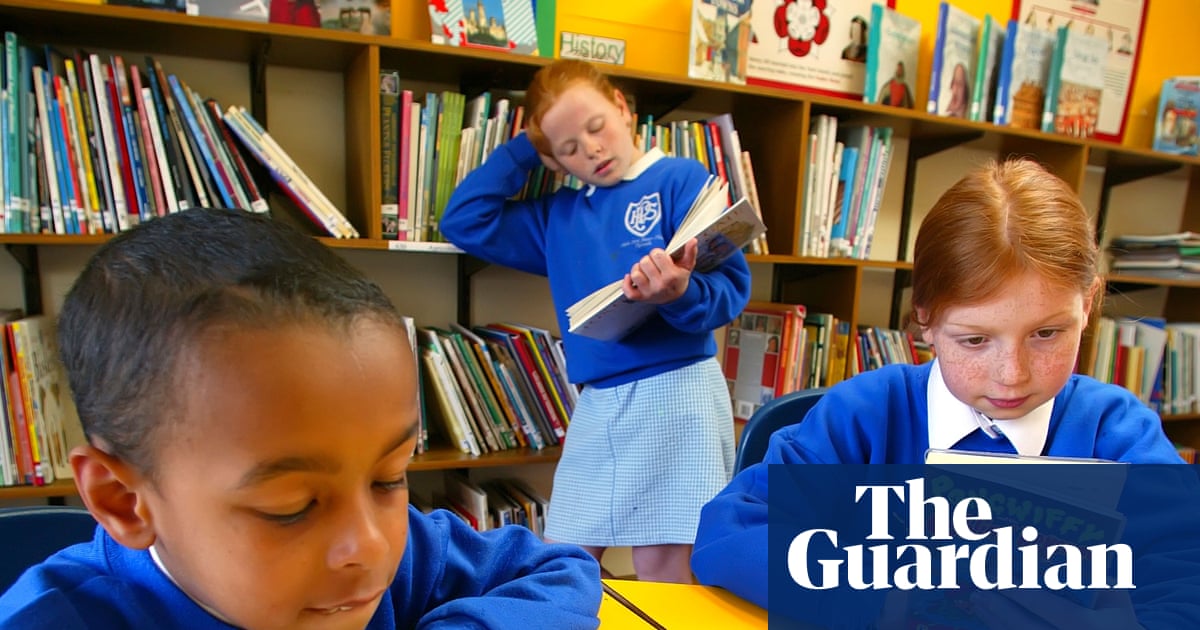Act 1. Scene 1. A classroom in a secondary school in Peterborough. It is a dreary, wet afternoon. Pupils file into the room, take their seats and face the front.
These year 10 English students at Ormiston Bushfield academy are taking part in a workshop about Macbeth, part of a new curriculum devised by the Royal Shakespeare Company (RSC) to bring the Bard’s works to life in the UK’s slightly stuffy classrooms.
The pupils are quiet. They slump in their seats. Then a rehearsal-style game of “pass the click [of fingers]” warms them up, and a few minutes later they are up on their feet, paired up and performing some of Shakespeare’s best-known lines with gusto.
The focus of this session is on Act 1, scene 7, a pivotal moment in Shakespeare’s famous tragedy where Macbeth is having doubts but is persuaded to kill King Duncan by his wife, Lady Macbeth, who taunts and goads him into action.
“Art thou afeard … ?” rings out across the desks. “I have given suck,” someone else yells out, without so much as a giggle, as “plucked my nipple” and “boneless gums” (some of Lady Macbeth’s many memorable lines) echo through the classroom.
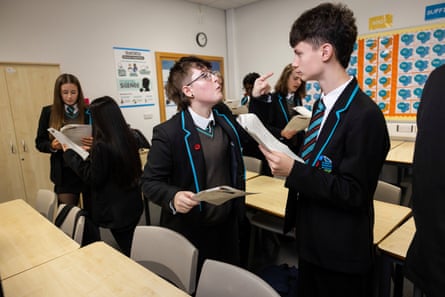
Paul Ainsworth, the RSC’s young theatre makers developer, who is running the session, is delighted. “Generally we are all terrified of Shakespeare,” he says. “But as soon as we start working actively on the text, exploring it as a play rather than a piece of literature, it opens it up to young people.”
The RSC Shakespeare curriculum, which launches on Wednesday, is an online platform for teachers and pupils which uses the RSC’s rehearsal-based teaching approaches – honed in classrooms across the world – to transform the study of Shakespeare in schools.
Instead of pupils sitting at their desks glumly taking it in turns to read the play out loud, the RSC curriculum treats Shakespeare’s works as living, breathing texts for performance. Launching first with Macbeth this year, Romeo and Juliet will follow in early 2026, with two more plays each academic year.
“The RSC can’t get actors into every school in the country,” says Adjoa Andoh, who plays Lady Danbury in Bridgerton and is a leading light in the RSC. “So this is a way of getting Shakespeare – a living, breathing thing – into schools to excite kids.”
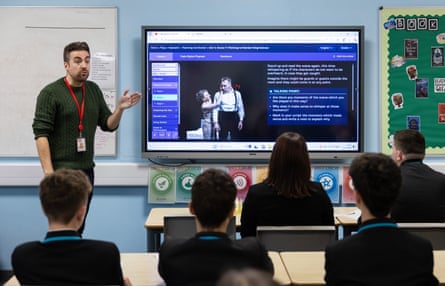
The RSC approach is working well for 15-year-old Charlie, who generally prefers rap to Shakespeare. “I’m not usually a performer,” he says. “But it was a nice break, doing something different.”
Kieran, 14, is also enthusiastic. “I really enjoyed it. I think some people don’t like Shakespeare because they don’t understand immediately what a lot of it means, but if you listen to it a little bit, even if you don’t fully understand it, you can grasp what’s going on.”
David Tennant, best known as Dr Who but a Shakespeare veteran whose recent performance as Macbeth garnered a five-star review in the Guardian, is enthusiastic about the new curriculum. “Many young people’s first experience of Shakespeare is in a classroom.
“The lucky ones might have a brilliant teacher who can bring it to life, but many find themselves inexplicably mouthing words that make little sense to you at the age of 14. Shakespeare should be experienced, engaged with and performed, not just read from a page.”
Judi Dench, who has played most of Shakespeare’s major female roles in and told the Guardian in 2023, “All I ever wanted to do was play Shakespeare, nothing else”, believes his plays are timeless and can still resonate with young people today.
Dench said: “In the rehearsal room, we don’t have all the answers on day one, instead we explore the play and its language, peeling back its layers and playing with different interpretations to find a way of telling the story for today.
“The Shakespeare curriculum will bring the spirit of collaboration, inquiry and discovery from the rehearsal room into classrooms up and down the country, inspiring and engaging young minds”.

 3 months ago
94
3 months ago
94



